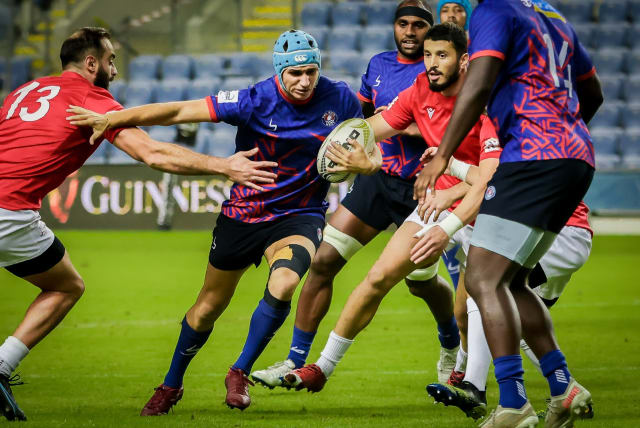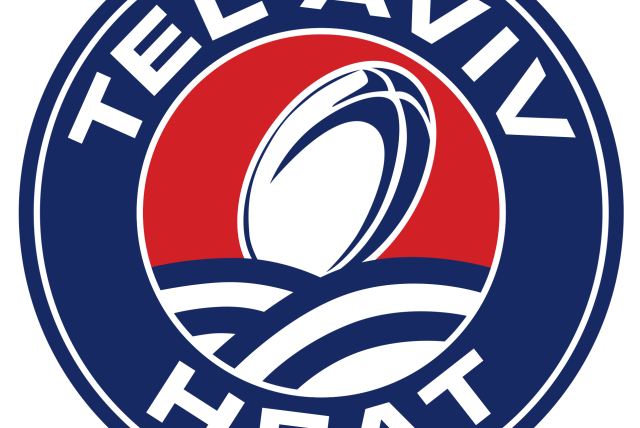World Rugby’s decision allowing disinvitation of Israel is unsporting - editorial

World Rugby’s decision sets a bad precedent that should raise a red flag in the arena of international diplomacy.
World Rugby, the sport’s global governing body, has ruled that the decision by the South African Rugby Union (SARU) to disinvite an Israeli team, Tel Aviv Heat, from an international competition last month was not discriminatory.
World Rugby’s decision sets a bad precedent and compounds the unsporting move by SARU that should raise a red flag not just in the world of sport but also in the arena of international diplomacy.
Let’s first review the sequence of events. SARU announced on February 3 that the Tel Aviv Heat team was no longer invited to the March 24 competition, called the 2023 Mzansi Challenge. The decision came following pressure from the South African BDS Coalition, an affiliate of the Palestinian BDS National Committee that promotes the Boycott, Divestment and Sanctions movement against Israel.
SARU president Mark Alexander said that after listening to the opinions of “important stakeholder groups,” the decision had been made to disinvite Tel Aviv “to avoid the likelihood of the competition becoming a source of division, notwithstanding the fact that Israel is a full member of World Rugby.”
In an interview with The Citizen, a South African newspaper, South African Jewish Board of Deputies vice president Zev Krengel said Alexander had told him that the invitation to Tel Aviv Heat had been pulled “when BDS and other antisemitic groups put pressure on them and [issued] death threats.”
The irony, Krengel said, is that the same SARU that had barred black players from playing for the Springboks under apartheid was now “behaving in the exact same way” against Israeli players.
The Israel Rugby Union also cried foul, calling it blatant discrimination against a World Rugby member state. Joshua Schewitz, the head coach of the Rishon Lezion Owls club, who previously played rugby in South Africa, submitted a formal complaint, with assistance from the South African Zionist Federation and UK Lawyers for Israel, arguing that SARU had violated its own constitution when its executive council withdrew the invitation to the Tel Aviv team.
Calls to reverse the decision, despite BDS threats, fell on deaf ears and the tournament proceeded without the Israeli team.
Shortly after the tournament, however, following an investigation into the Israel Rugby Union’s complaint, World Rugby ruled that the SARU decision had been made due to threats of violence, according to a March 29 letter obtained by JTA.
In the letter, World Rugby noted the public reaction to inviting an Israeli team to South Africa, including a statement by the BDS coalition claiming that SARU would “have blood on its hands” if Tel Aviv Heat participated.
“World Rugby is satisfied with the explanation provided by SA Rugby that the decision to withdraw the invitation to Tel Aviv Heat to participate in the Mzansi Challenge was based on concerns about an increased safety and security threat including the potential threats of violence, disruption and risks to the safety of stakeholders, together with concerns about the ability of SA Rugby to meet its obligations as an event organizer under the Safety at Sports and Recreational Events Act,” the letter stated.
Tel Aviv Heat CEO Pete Sickle was understandably not convinced by the argument that the cancellation had to do with security threats. “We expected World Rugby to take a closer look at the events leading up to the withdrawal of the invitation,” Sickle told JTA. “We still have not seen tangible evidence of credible and significant threats to public safety. We haven’t seen any evidence of SARU or South African security forces analyzing those threats before making this decision.”
Jewish organizations were right to blow the whistle, slamming the rulings by both SARU and World Rugby. Schewitz summed it up well. “Rugby is a game divorced from politics,” he said, explaining that the idea is to “play the game hard and then shake hands when it’s finished. Bringing politics into the game is contrary to the rugby ethos.”
In 1995, Nelson Mandela demonstrated how sports in general and rugby, in particular, could bring people together when he orchestrated a show of unity after South Africa’s victory in the Rugby World Cup over New Zealand, beautifully captured in the film Invictus.
World Rugby and SARU have shamed Mandela’s legacy.
Jerusalem Post Store
`; document.getElementById("linkPremium").innerHTML = cont; var divWithLink = document.getElementById("premium-link"); if (divWithLink !== null && divWithLink !== 'undefined') { divWithLink.style.border = "solid 1px #cb0f3e"; divWithLink.style.textAlign = "center"; divWithLink.style.marginBottom = "15px"; divWithLink.style.marginTop = "15px"; divWithLink.style.width = "100%"; divWithLink.style.backgroundColor = "#122952"; divWithLink.style.color = "#ffffff"; divWithLink.style.lineHeight = "1.5"; } } (function (v, i) { });

